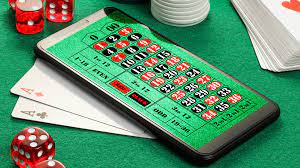Prop trading firms have taken a central place in the modern financial market, offering opportunities to skilled traders to leverage their abilities while managing firm capital. The entry point, however, is no walk in the park. Evaluation processes at prop trading firm are set up to test every aspect of a trader’s expertise. Understanding this process is key for anyone aspiring to join these firms.
Assessing Trading Skills with Simulated Accounts
The first stage of the evaluation process primarily revolves around traders demonstrating their skills in a simulated environment. Firms provide candidates with access to demo accounts, where they mimic real market conditions.
This phase is crucial because it removes the risk of real capital loss while allowing candidates to prove their mettle. Firms monitor every detail – from how you strategize to how well you adapt to sudden market fluctuations. The emphasis typically lies on risk management. Traders who show an ability to protect capital while chasing profits often stand out in this stage.
Risk Parameters and Profitability Targets
Prop firms design strict risk parameters and profit goals during their evaluation phases. These benchmarks ensure that candidates follow disciplined trading practices, a principle that drives the success of every prop trading firm.
Candidates might be limited to a maximum daily drawdown (e.g., losing no more than 3% of the account balance) and must hit a specific profit target, such as 8-10%, without breaching these drawdowns. This balance between ambition and caution distinguishes consistent traders from reckless ones.
Perhaps the most significant takeaway is that hitting profit targets alone won’t suffice if a trader’s approach prioritizes high-risk setups. Firms are particularly interested in candidates who demonstrate calculated risk-taking and consistent performance.
Behavioral Analysis and Strategy Adherence
Prop firms also scrutinize trading behavior and how closely candidates stick to their strategies. Are your entry and exit points logical? Do you adjust your strategy rationally based on real-time factors, or do you impulsively react to market movements?
A candidate who sways from discipline will often face disqualification, regardless of how strong the profits may appear. Successful trading isn’t just about numbers on the board; it’s about showing resilience, control, and the capacity for long-term profitability.
Importance of Psychological Resilience
Trading isn’t merely numbers, charts, and trends; it’s a battle of wits and psychological strength. The evaluation process often reveals that mental composure is as vital as technical skill. Many candidates fail due to succumbing to pressure, emotional trading, or overleveraging in an attempt to recover losses.
Prop firms apply tests during evaluations specifically designed to gauge how candidates perform under stressful conditions. Patience, calmness, and sticking to well-thought-out strategies during volatile market conditions can set a trader apart.
Post-Evaluation Mentorship and Capital Allocation
For those who pass the evaluation phase, a structured mentorship program often follows. Prop firms assign mentors or senior traders to guide successful candidates, helping them refine their strategies and align them with the firm’s ethos. Following this, traders receive access to firm-provided capital. The initial allocation may be conservative, increasing as the trader continues to prove their abilities in real market conditions.
The evaluation process at prop trading firms is a true measure of discipline, strategy, and mental strength. Carrying these insights in mind, aspiring traders can better prepare themselves to stand out and step confidently into the world of proprietary trading.


